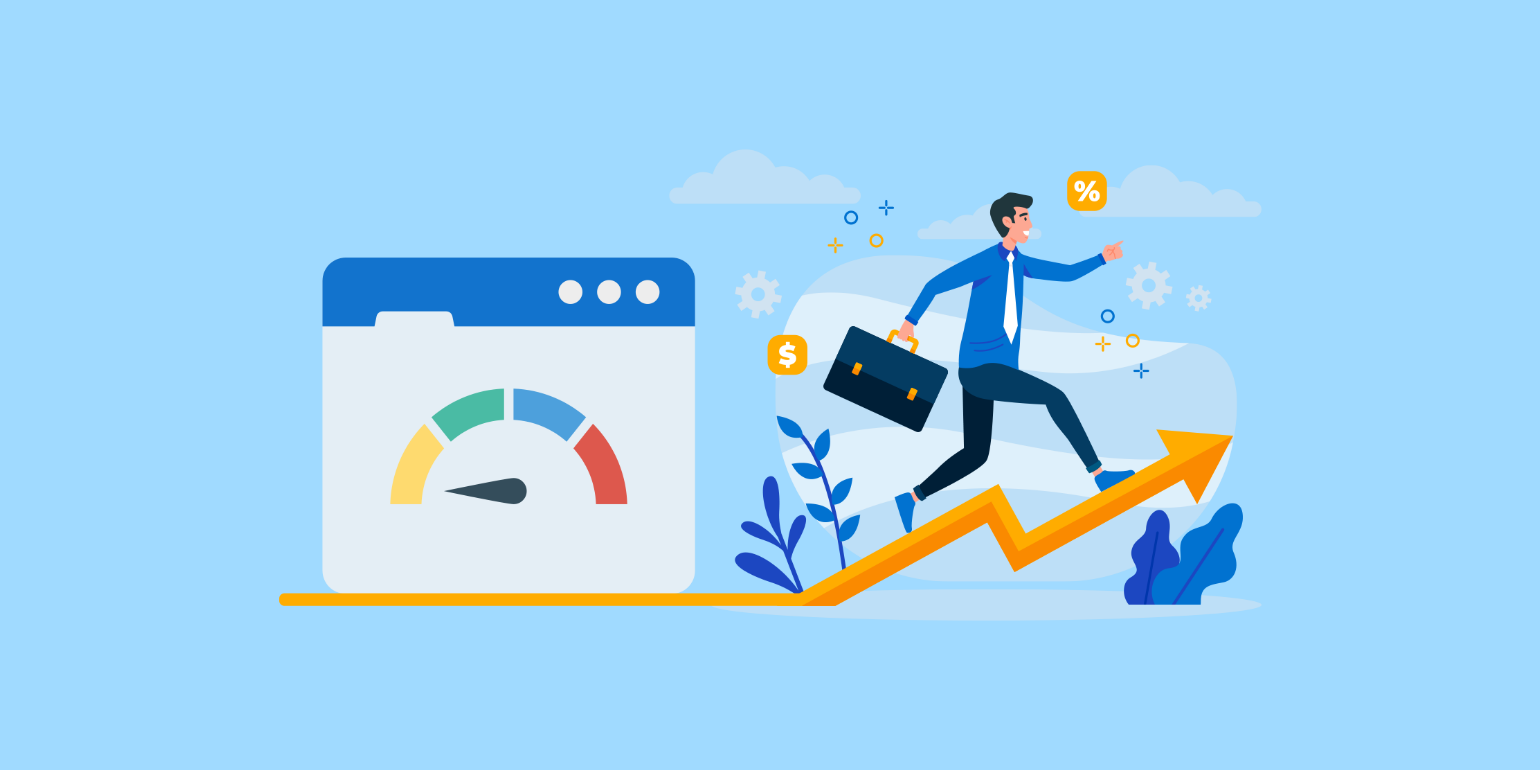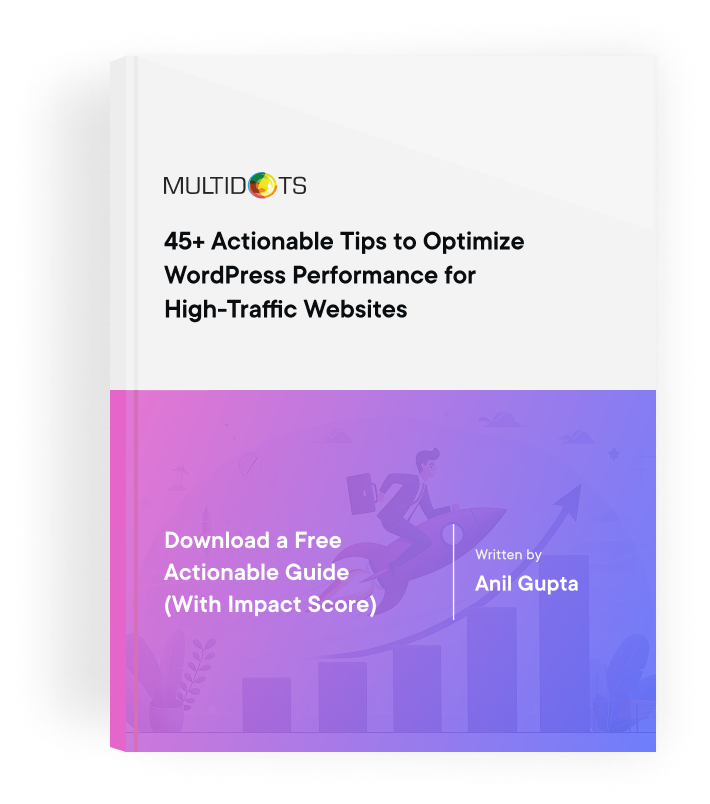How Website Performance Impacts Business Success
Explore how website performance directly influences business success and drives customer engagement and conversions

Table of Contents
We’ve all been there – stuck on a website that won’t load, trying to view pages that time out, or getting error messages when trying to navigate the site we’re visiting. This can happen on both desktop computers and mobile devices, everyone has experienced this at one time or another.
Poor website performance isn’t necessarily an indicator of a poor-quality business, but that’s often the impression that your users come away with when they experience problems with your site. To avoid long term negative results, let’s learn more about website performance and its impact on the success of your business.
Why Website Performance Matters for Business Success
Website performance refers to the time it takes for your website’s pages to download and display to your users. Your users approach your site from a variety of devices and web browsers, so it’s important to ensure that your site runs smoothly for all. If your website doesn’t perform well, the results can cause long-lasting or permanent damage to your business.
There are many ways that your website’s performance and your business’s success go hand in hand and these are several of them that you should keep in mind when developing your website to ensure optimal speed and results.
1. UX
User experience (UX) involves the satisfaction of visitors who land on your site. As one of the main goals of website performance is to retain users, it’s important to think of their experience while they are on your site. If they’re waiting too long for pages to load, are getting redirect or error messages or there are pages that are inaccessible, they will consider their experience to be poor and will move on to other sites. For every second that your pages take to load, the quality of your users’ experience declines. Each additional second of wait time creates an opportunity for your users to abandon your site. Mobile users are equally impatient as desktop users, giving only three seconds for a page to load on their mobile device before they abandon it. These expectations aren’t unreasonable, given the millions of websites that are able to meet users’ standards, so if yours isn’t one of them, your business is sure to take a hit.
2. Credibility
As mentioned, visitors to your site place a hefty weight on your website’s performance when forming their impressions. For new visitors, these are first impressions that can make or break whether they’ll ever return to your site or do business with your company. Even loyal users are subject to abandon your site and turn elsewhere for faster performance and quicker access to the information they’re looking for. A business with a slow-loading website is generally seen as lesser-quality and as less credible. If your website can’t hack it in your users’ opinion, the damage to your reputation can be irreversible in today’s fast-paced environment that demands optimal performance.
3. Competitive Advantage
A successful website visit results in conversions, whether that’s people buying your products, deciding to contact your company for more information, signing up for your programs, downloading your app, or making the choice to visit your brick and mortar location. After all, vying for those conversions is one of the main reasons that your site exists in the first place. For businesses in nearly any industry, there are a seemingly endless number of competitors that are eager to sway your customers over to their site. A poorly performing site is an easy way to kiss your visitors' goodbye and potentially never see them again. Slow, unreliable performance creates a ripe opportunity for your competitors to capture your target market’s attention and business. Given the choice between two businesses, one with a slow-loading site and one with speedy performance, it’s an easy choice for consumers who are deciding which company to give their money to.
How to Measure Your Website Performance
With this understanding of how website performance impacts your business’s success, you’re likely wondering how your company stacks up and whether you’re on the right track. You can start by visiting your site yourself, from both your desktop and mobile devices (tablet and smartphone should both be included) and seeing what your own experience is. Many business owners don’t spend time on their own sites, so there may be issues that you aren’t aware of. Take note of any pages that are slow to load or broken links, but don’t stop there. To effectively measure your website’s performance, you’ll need to consider some core KPIs that will reveal several important things:
- The bounce rate lets you know the percentage of visitors who leave your site after spending time on only one page. A high bounce rate raises the question of why users are leaving your site. One of the main reasons is because your site isn’t loading quickly enough and they don’t have the patience to explore other pages.
- Session time gives you insights into how long your users are spending on your site. Visits that last only a few seconds can be an indication that your site isn’t loading and users are abandoning it without further interaction.
- Conversion rates can also indicate how well your site is performing. Poor conversion rates mean that your visitors are leaving your site without taking action like signing up for a membership or purchasing your products. While this can be due to a variety of factors, a slow site can be one of them, as well as a bad impression of your business as a result of poor performance.
It’s easy to see how important site performance is to the success of your business, your reputation, and your ranking among your competitors. As a consumer yourself, you understand the negative impression you have when you have a poor experience on a company’s website, and there’s no denying that your visitors will feel the same about your business if your website’s speed isn’t up to their standards. Avoiding common mistakes is just the first step.
Working with a strong web development partner like Multidots guarantees optimal site performance and the greatest possible business success. The team at Multidots team are experts in developing efficient sites that lead to the conversions you need to grow your business and reap the greatest ROI on your website investment. Contact our team for a consultation on how we can work together to develop a site that performs the way your business deserves.
References
Schedule a meeting to discuss the potential of your website and how you can turbocharge it!
Contact Us
